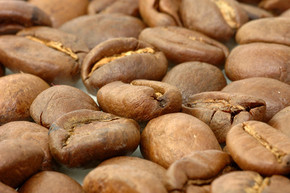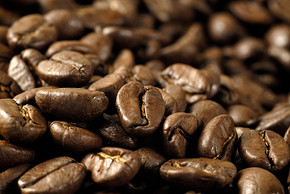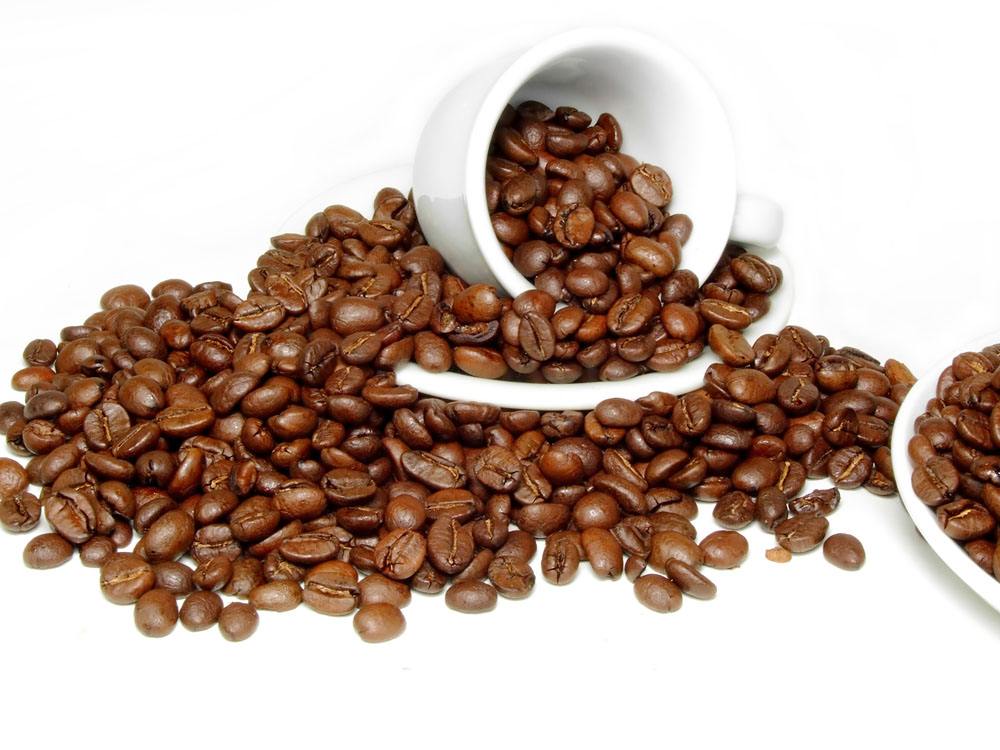Is Rosa coffee the best? Why is Rosa coffee so expensive?
Follow the caf é (Wechat official account vdailycom) and found that Beautiful Cafe opened a small shop of its own.
Expensive (rose) coffee is the best?
I believe many enthusiasts and practitioners will have heard the name Geisha (Rosa / Geisha). For coffee people, it is like the layman who drinks coffee will think of Blue Mountain and Kopi Luwak. But she does have a good flavor that she is proud of, but the high price is easy to deter consumers and practitioners.
As the author pays attention to the coffee competition over the years, I feel more and more that the competition has already changed. I feel that these brewing competitions have changed from simple competition technology to richer and more expensive beans. I may have ignored how to specialize in superb skills to achieve the best production status of a bean.

Every time it comes to the brewing competition, I always hear the contestants say that the coffee I use this time comes from the prospect of ruby (that is, a very expensive rose summer) of XXX,90+ in the Emerald Manor of Panama, washing rose summer with water and drying rose summer. Anyway, the word "rose summer" is inescapable, and everyone will choose to use rose summer.
However, these rare boutique coffees with high prices are rarely put in front of guests. The people who drink the most are the judges of the competition.
The game is just a place to consume top beans.
Can you say: is rosy summer a good coffee? Is the coffee of this tree species worth being sought after?
One of the core essentials of boutique coffee is to emphasize the regional taste of coffee "Terroir".
In other words, each producing area should have its own iconic flavor, iconic tree species, such as Kenya's citrus and berry flavor, as well as its iconic SL28 and SL34 tree species.
The customs and customs of planting from different areas may require our baristas to dig and show.
Even in the rosy summer, he suffered many years of neglect until he was transplanted to Panama and made a splash with the help of the local conditions of Panama.
Other tree species, or should have more flavor that we need to explore, but also need us to give them the opportunity to present to the guests.
Progress in refined raw beans in coffee-producing countries
During this exhibition trip, the author participated in a lot of cup testing meetings and drank a lot of coffee from the country of origin in the cup test.
There are a lot of foreign origin give me a very amazing feeling, Guatemala, Rwanda, Honduras, Brazil, all give me a new feeling.
Especially in Brazil, by chance, the author had the honor to participate in the cup test of the new production plan coffee of the 2015 world baristas champion Sasa Sestic, which is called [Project New Flavors].
Five coffee beans were tested in the middle cup. except for the different post-processing methods, the elevation plots of all other raw coffee beans were in the same place.
However, different post-processing methods have stimulated the flavor and high-quality flavor of coffee beans, which makes the author change his view of Brazil. if this cup test is blind, the author will probably not think that it is Brazilian coffee beans.
Very fatefully, the representative of Brazil was also present to explain to us how these coffee treatments were realized, each fermentation procedure, the required market, environmental parameters, and what to pay attention to, they all regulated them one by one, and strictly controlled the variables. I was very impressed.
In the end, he said something that made the author feel the most: "what Brazil has always given us is a big country of commercial coffee, and there is very little boutique coffee, but we hope to tell you through our efforts that we in Brazil also have a very good boutique." and a good flavor. "
The struggle history of coffee farmers in the era of small producing countries
Not only Brazil, but also countries such as Rwanda, Honduras and Nicaragua are rarely active in the mouth of the industry, but these countries have become popular this year. The quality of their cups is not inferior to that of big boutique countries like Ethiopia.
Coffee farmers in Guatemala are also very hard-working and have the most climatic conditions in the world. More than 200 microclimates gather in the same country, and the environmental variables are very large, but in cup-by-cup tests, the author learned that they have basically mastered these data and have a very large knowledge reserve of the impact of climate on coffee flavor.
For example, how the temperature and humidity changes caused by the sea breeze in the morning will affect the coffee berries, and which parameters of coffee, such as sugar content, can be well judged.
Coffee farmers have simply ushered in a new era of planting.
From the point of view of the cup quality of which new era tree species, Geisha is no longer alone and these rising stars will certainly have the performance of the experienced world over time.
With the development of our demand for boutique coffee, coffee farmers are also working hard to improve their planting and processing techniques.
If we only focus on those high-priced coffee, it may be very unfair to those coffee farmers who work hard in the place of origin.
The producing area needs our support very much, so that coffee cultivation can have a virtuous circle, instead of blindly stuffing money to those so-called high-priced raw beans, these small countries can also have a good flavor performance.
The author is most looking forward to-- Yunnan, China
I have talked about many countries and places of origin, but what the author has never mentioned is the nearest producing area to us, Yunnan, China. This is something we really need to pay attention to.
Chinese coffee people, should we pay more attention to coffee farmers in our own country when we are in China?
In the exhibition, the author drank the micro-batch suntan from Manlaojiang, and borrowed the treatment method of 90+ raw bean company. the quality of the cup was quite good, and even had some delicate performance of Panamanian coffee. This makes the author see the future vitality of Yunnan. Yunnan of China has great potential. I believe that Yunnan will perform well on the world stage in the near future.
But it seems that some coffee people or consumers always have the idea of worshiping foreigners and fawning on foreigners, assuming that the same cup scores and good cup performance, at the same price, people will think that Yunnan beans are more expensive?
This makes the industrial chain into a vicious circle of contradictions. Coffee farmers actually want to give us a lot of good raw beans, but it is difficult for them to invest in plantations and improve the quality of coffee without reasonable returns.
In order to ensure survival, coffee farmers can only plant and output at the lowest cost, and the quality of the cup will not perform very well, so the vicious cycle will go on all the time.
Everyone will buy coffee beans from better producing areas and are willing to pay a high price, while those relatively less famous producing areas will be more or less snubbed.
But is this really going to last?
Farmers in the producing area work very hard and take great pains to deal with it. as an industry, we should look at each boutique coffee producing area more objectively.
Write at the end:
Different countries have the flavor that is worth us to present to the guests, so that we and even the guests can feel the different regional customs of each origin. The customs and customs of each place is the most need for us to retain, blindly pursue the similar flavor performance of the same place, is that what coffee people should do?
Is there only rosy summer left in boutique coffee? It seems to have deviated from the original intention, where is the regional taste of Terroir emphasized by boutique coffee? Through the most appropriate baking skills to present the guests with the most unique flavor, this is the heart of the baker and barista.
Important Notice :
前街咖啡 FrontStreet Coffee has moved to new addredd:
FrontStreet Coffee Address: 315,Donghua East Road,GuangZhou
Tel:020 38364473
- Prev

Introduction of Rose Summer Coffee beans in Blue Mountain Manor
Following caf é (Wechat official account vdailycom) found that Beautiful Cafe opened a small shop of its own. The bean we are talking about today is from the Blue Mountain Manor in Trujillo (Trujillo), Columbia's Valley Province, which is a sub-estate of Hope Manor. Coincidentally, the rose summer planting in Colombia is more or less the same as the jade estate in Panama.
- Next

Description of Climate and Flavor in altitude producing area of Rosa Coffee Bean Manor
Following Cafe Review (official account vdailycom of Wechat) found that Beautiful Cafe opened a small shop of its own: Geisha was discovered in the rose forest of Ethiopia in 1931 and sent to the Coffee Research Institute in Kenya; it was introduced to Uganda and Tanzania in 1936, Costa Rica in 1953 and Panama from Dongba Seven Farmers in the 1970s.
Related
- Detailed explanation of Jadeite planting Land in Panamanian Jadeite Manor introduction to the grading system of Jadeite competitive bidding, Red bid, Green bid and Rose Summer
- Story of Coffee planting in Brenka region of Costa Rica Stonehenge Manor anaerobic heavy honey treatment of flavor mouth
- What's on the barrel of Blue Mountain Coffee beans?
- Can American coffee also pull flowers? How to use hot American style to pull out a good-looking pattern?
- Can you make a cold extract with coffee beans? What is the right proportion for cold-extracted coffee formula?
- Indonesian PWN Gold Mandrine Coffee Origin Features Flavor How to Chong? Mandolin coffee is American.
- A brief introduction to the flavor characteristics of Brazilian yellow bourbon coffee beans
- What is the effect of different water quality on the flavor of cold-extracted coffee? What kind of water is best for brewing coffee?
- Why do you think of Rose Summer whenever you mention Panamanian coffee?
- Introduction to the characteristics of authentic blue mountain coffee bean producing areas? What is the CIB Coffee Authority in Jamaica?

